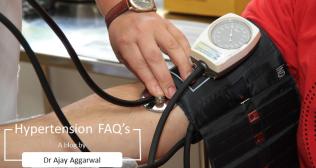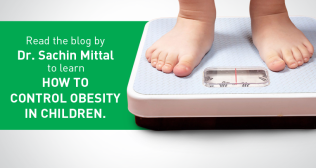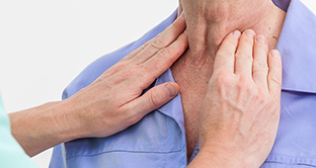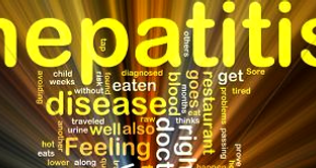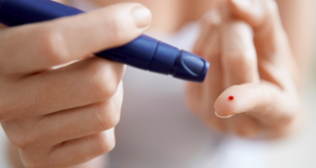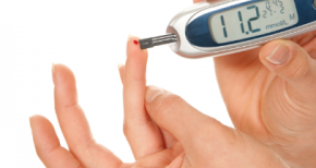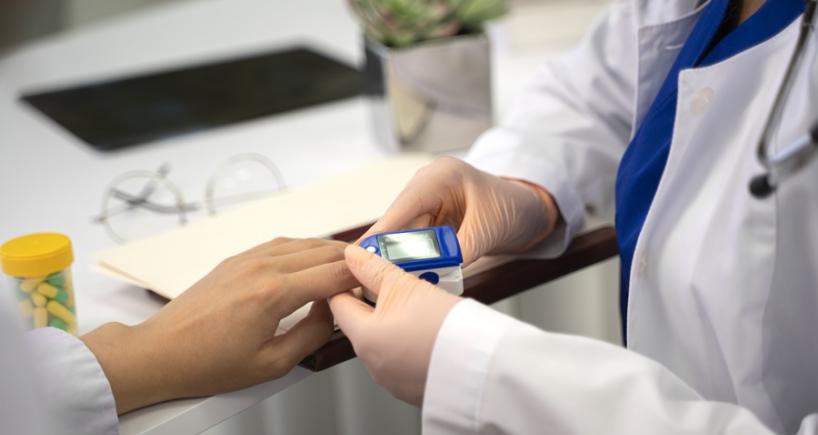
What is Hypoglycemia: Understanding The Risks and Fear
About Hypoglycemia Unawareness
Hypoglycemia unawareness is more prevalent than previously thought and can lead to critical complications. Hypoglycemia unawareness was regarded as a complication mostly observed in individuals suffering from type 1 diabetes. However, with the increased usage of continuous glucose monitors (CGMs), it is now proven that hypoglycemia unawareness also impacts many individuals with type 2 diabetes who use insulin or other medications that can cause hypoglycemia.
Factors Increasing the Risk of Hypoglycemia
Siesta and Going Low
Many individuals develop hypoglycemia while they are asleep and are unable to perceive the manifestations or treat them. If this happens frequently, it can impact the ability to detect the warning signs and symptoms of hypoglycemia while awake.
Engaging in Physical Activity
The chance of developing hypoglycemia is elevated both during and after physical activity when the tissues of the body are more sensitive to insulin. This impact can be delayed for up to 15 hours, especially in strenuous physical activity.
Suffering From Chronic Diabetes
Studies found that approximately 50% of individuals who had utilized insulin for over two decades had developed impaired hypoglycemia awareness, while only about 20% of those who were on insulin for less than a decade experienced this problem. Individuals who have had diabetes for a longer period are more likely to have been exposed to several episodes of hypoglycemia, which has been shown to contribute to hypoglycemia unawareness.
Age
As individuals age, they begin to experience cognitive manifestations like slowed thinking, confusion, and difficulty speaking at the same time as autonomic symptoms, such as shakiness, hunger, or perspiration. The cognitive symptoms can, therefore, create a hindrance to the recognition of hypoglycemia. At a younger age, individuals usually identify hypoglycemia more frequently because they experience autonomic manifestations before cognitive symptoms. There is no definite age when cognitive impairment begins, as the aging process varies widely across individuals. However, certain studies have demonstrated that hypoglycemia unawareness occurs more regularly in individuals above the age of 60 years.
Alcohol Consumption
In the short duration, alcohol consumption decreases the ability to identify typical symptoms and impairs the liver’s capability to secrete glucose when blood sugar is too low. These impacts typically last as long as it takes the body to process the alcohol. There is a lack of proof that alcohol elevates hypoglycemia unawareness in the long term unless chronic, heavy drinking leads to permanent hepatic damage. That, in turn, increases the chances of severe hypoglycemia.
Prescription Drugs
Nonselective beta-blockers utilized to manage elevated blood pressure, such as Inderal, might decrease the capability to recognize hypoglycemia. Selective serotonin reuptake inhibitors (SSRIs) employed to treat depression can also promote hypoglycemia unawareness.
Fear of Hypoglycemia
Common causal factors include:
- Stress
- Risk of diabetes complications
- Insufficient knowledge and prowess to manage diabetes
- Experiencing unpleasant manifestations of elevated blood glucose levels (e.g., lacking energy or feeling lethargic)
- Worrying about diabetic ketoacidosis or perfectionistic tendencies
An individual may respond to their fear of hyperglycemia by lowering their blood glucose levels.
Implications or Consequences of Hypoglycemia
Emotional Impact
The worry and anxiety linked with hypoglycemia can impair quality of life, causing emotional distress, social isolation, and decreased adherence to treatment plans.
Prone to Accidents
People suffering from T1D have an increased risk of automobile accidents especially because of hypoglycemia that hampers physiological and protection responses.
Ways to Get Back Hypoglycemia Awareness
A better way to avoid hypoglycemia unawareness is to decrease the duration of low sugar levels. The following approaches may also be useful:
More Frequent Blood Glucose Measurement
By estimating blood sugar/glucose several times daily, many individuals with impaired awareness can recognize potent hypoglycemia and decrease the risk of low glucose levels without warning.
Continuous Glucose Monitoring (CGM)
Measuring glucose levels in the space between cells helps in near real-time assessment of glucose levels and trends. CGMs can give alerts when glucose levels exceed low or high thresholds or are fluctuating promptly, permitting patients to adjust insulin-dosing carbohydrate intake to reduce the risk of hypoglycemia.
Flash Glucose Monitoring (FGM)
An approach of glucose (sugar) testing that estimates, displays, and, without interruption, stores glucose readings recorded by it. FGM might help the individuals who recently lost hypoglycemia awareness. However, for an individual completely unaware of hypoglycemia, a CGM with an alarm will be required.
Islet Cell Transplantation (ICTx)
Some individuals suffering from T1D who have severe hypoglycemia and poor hypoglycemia awareness can be recommended for islet transplants. This approach prevents severe hypoglycemia and restores specific counter-regulatory secretion of hormones.
Fructose Infusion
This technique amplifies epinephrine and glucagon responses and elevates glucose production during hypoglycemia.
Individualized Targets
In diabetic patients suffering from hypoglycemia, blood sugar targets should be relaxed. Suitable targeting of plasma glucose may help patients and healthcare professionals attain HbA1C goals, decrease excessive self-testing, and reduce the occurrence of severe hypoglycemic events.
Educational Programs
The main objective of a hypoglycemia-reversal program is to prevent hypoglycemia for at least four weeks. In diabetic patients suffering from hypoglycemia, an appropriate educational program comprises an emphasis on regular snacks at suitable times, warnings to take extra care at periods of higher risk, reducing alcohol consumption, and risk of delayed hypoglycemia after heavy alcohol intake or workout. Diabetes self-management education can help achieve physical and psychosocial advantages and results in behavior changes with a positive influence on the outcome.
Hypoglycemia unawareness presents an important challenge in the management of diabetes, with implications that extend beyond immediate health risks. Education and proactive measures, such as continuous glucose monitoring, are crucial in mitigating the potent dangers linked with this condition.
Popular Searches :
Hospitals: Cancer Hospital in Delhi | Best Heart Hospital in Delhi | Hospital in Amritsar | Hospital in Ludhiana | Hospitals in Mohali | Hospital in Faridabad | Hospitals in Gurgaon | Best Hospital in Jaipur | Hospitals in Greater Noida | Hospitals in Noida | Best Kidney Hospital in Kolkata | Best Hospital in Kolkata | Hospitals in Rajajinagar Bangalore | Hospitals in Richmond Road Bangalore | Hospitals in Nagarbhavi Bangalore | Hospital in Kalyan West | Hospitals in Mulund |
Doctors: Dr. Rana Patir | Dr. Rajesh Benny | Dr. Rahul Bhargava | Dr. Jayant Arora | Dr. Anoop Misra | Dr. Manu Tiwari | Dr. Praveer Agarwal | Dr. Arup Ratan Dutta | Dr. Meenakshi Ahuja | Dr. Anoop Jhurani | Dr. Shivaji Basu | Dr. Subhash Jangid | Dr. Atul Mathur | Dr. Gurinder Bedi | Dr. Monika Wadhawan | Dr. Debasis Datta | Dr. Shrinivas Narayan | Dr. Praveen Gupta | Dr. Nitin Jha | Dr. Raghu Nagaraj | Dr. Ashok Seth | Dr. Sandeep Vaishya | Dr. Atul Mishra | Dr. Z S Meharwal | Dr. Ajay Bhalla | Dr. Atul Kumar Mittal | Dr. Arvind Kumar Khurana | Dr. Narayan Hulse | Dr. Samir Parikh | Dr. Amit Javed | Dr. Narayan Banerjee | Dr. Bimlesh Dhar Pandey | Dr. Arghya Chattopadhyay | Dr. G.R. Vijay Kumar | Dr Ashok Gupta | Dr. Gourdas Choudhuri | Dr. Sushrut Singh | Dr. N.C. Krishnamani | Dr. Atampreet Singh | Dr. Vivek Jawali | Dr. Sanjeev Gulati | Dr. Amite Pankaj Aggarwal | Dr. Ajay Kaul | Dr. Sunita Varma | Dr. Manoj Kumar Goel | Dr. R Muralidharan | Dr. Sushmita Roychowdhury | Dr. T.S. MAHANT | Dr. UDIPTA RAY | Dr. Aparna Jaswal | Dr. Ravul Jindal | Dr. Savyasachi Saxena | Dr. Ajay Kumar Kriplani | Dr. Nitesh Rohatgi | Dr. Anupam Jindal |
Specialities: Heart Lung Transplant | Orthopedic |







